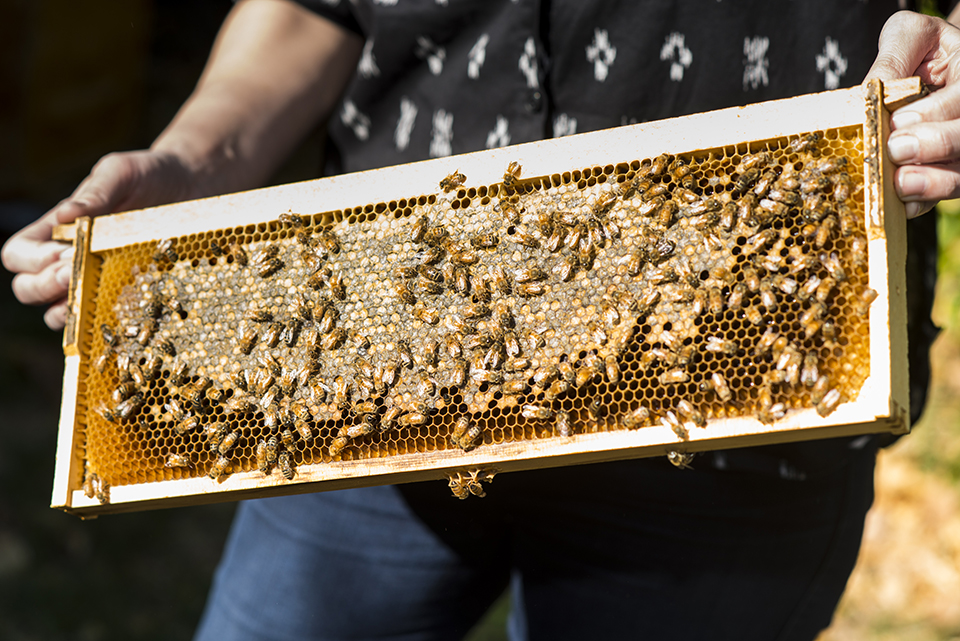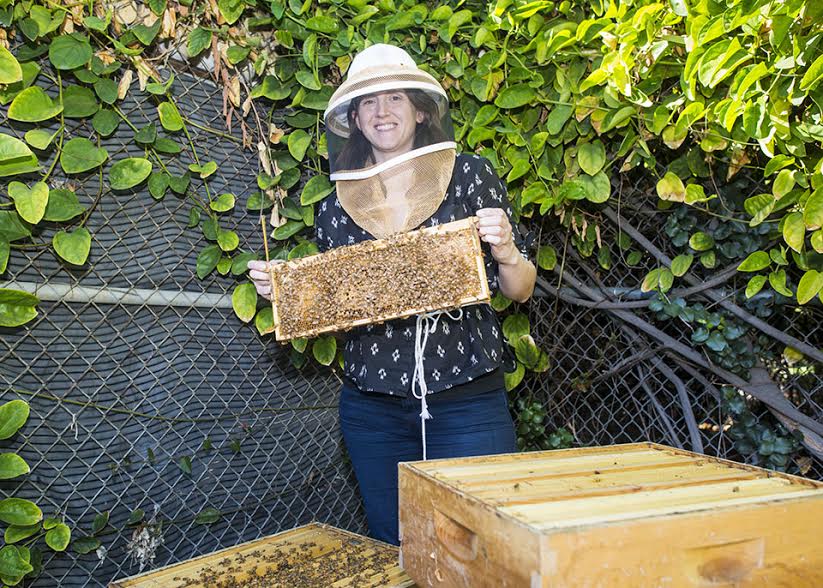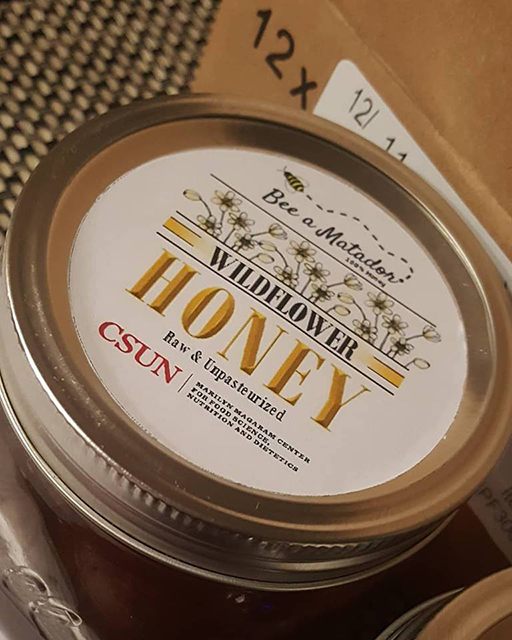Buzzworthy: CSUN Lands Bee Campus USA Affiliate Status
California State University, Northridge’s sustainability efforts have earned the campus an official certification as a “Bee Campus USA Affiliate.” The certification is awarded to campuses around the country that show a dedicated effort to the protection of bees and other pollinators.
CSUN has had a long history of bee-friendly activities, and faculty, staff and students plan to do much more. Rachel Mackelprang, associate professor of biology, is a beekeeper on campus who has done intense research on the gut bacteria of bees. She also leads a team of students that harvests honey and sells it to CSUN students, faculty, staff and members of the community. The “Bee a Matador” honey can be ordered through the Marilyn Magaram Center for Food Science, Nutrition and Dietetics, or bought at upcoming Associated Students Farmers Market days. The farmers market takes place on campus every Tuesday during fall and spring semesters.
“Bee Campus USA is an important recognition for the campus because we are already doing so much to help local pollinators,” Austin Eriksson said. “If you looked around campus three years ago, you would have noticed much more grass. Today, we have removed upwards of 360,000 square feet of grass and replaced it with local drought-tolerant landscaping.
“Many of the plants selected for the drought-tolerant plant palette are pollinator friendly, especially to our local pollinators,” Eriksson said. “CSUN received this affiliation because we have made a commitment to support pollinators and pollinator education.”
CSUN has committed to minimize its use of pesticides that are harmful to bee populations, and the university has joined 57 other U.S. campuses in improving college landscapes for pollinators. Bee Campus USA is an initiative of the Xerces Society for Invertebrate Conservation, a nonprofit organization based in Portland, Ore., with offices across the country.
The Bee Campus USA certification requires that a campus committee provide a forum for members of the campus community to get involved in providing pollinator education, and establishing or restoring habitat that provides food, nesting sites and “overwintering sites” for pollinators. The committee will include Austin Eriksson, CSUN’s director of Energy and Sustainability, and his team; the Institute for Sustainability; Physical Plant Management; and Mackelprang and her students.
Some of the other things CSUN will do to create a pollinator-friendly campus include: developing and maintaining a campus pollinator habitat plan, hosting an annual campus event to raise awareness about the importance of pollinators, and offering workshops to students who are interested in learning more about these topics.
“The program aspires to make people more PC — pollinator conscious, that is,” added Scott Hoffman Black, executive director of the Xerces Society. “If lots of individuals and communities begin planting native, pesticide-free flowering trees, shrubs and perennials, it will help to sustain many, many species of pollinators.”
For more information about Bee Campus USA and the Xerces Society, visit https://www.beecityusa.org/current-bee-campuses.html





 experience
experience